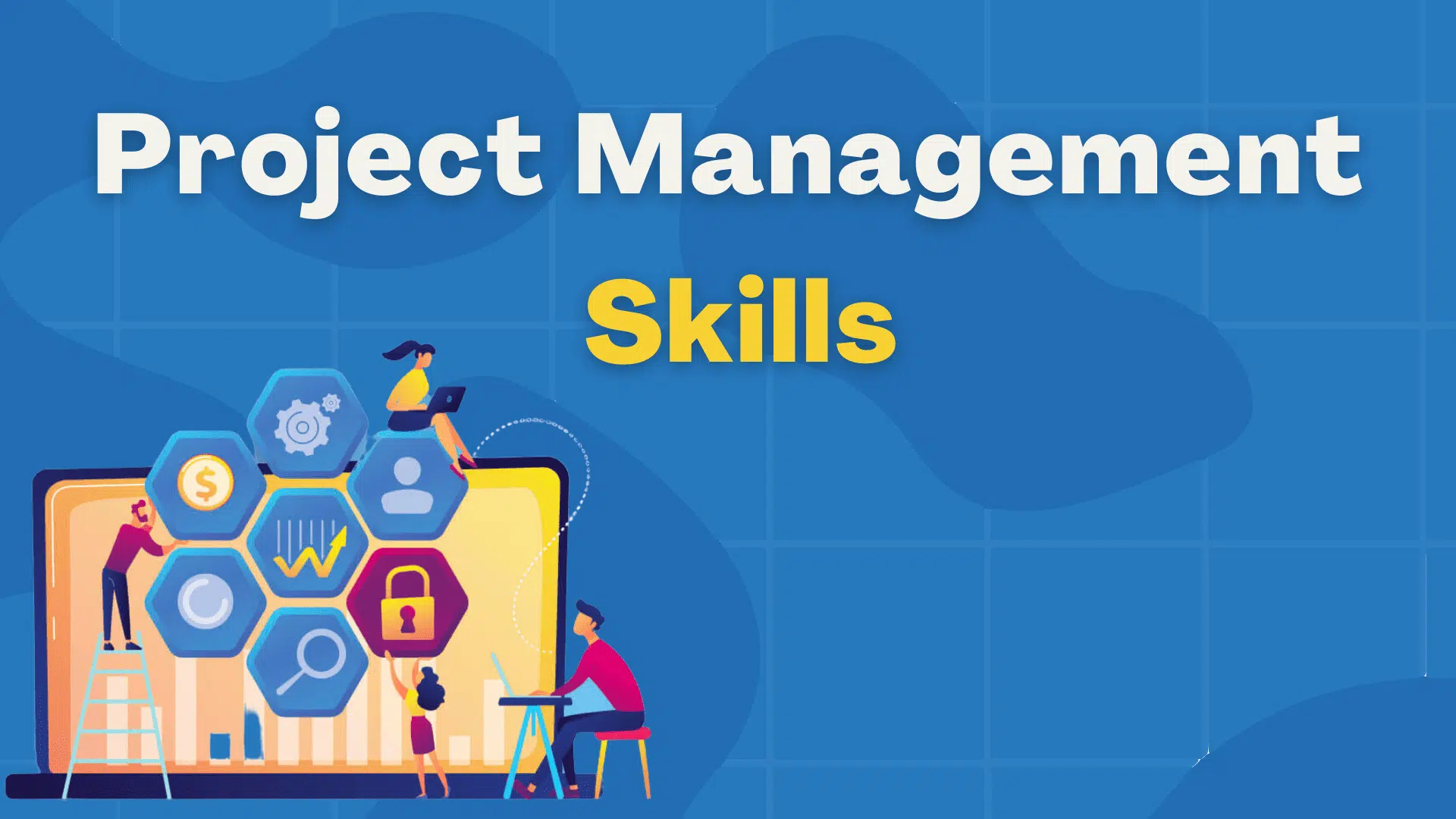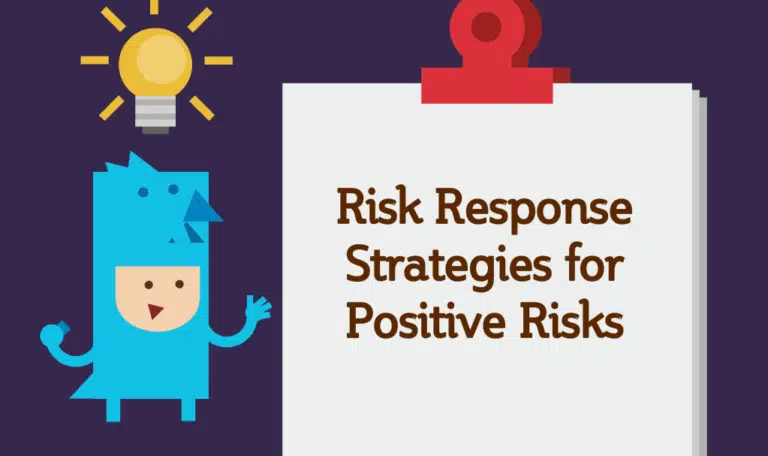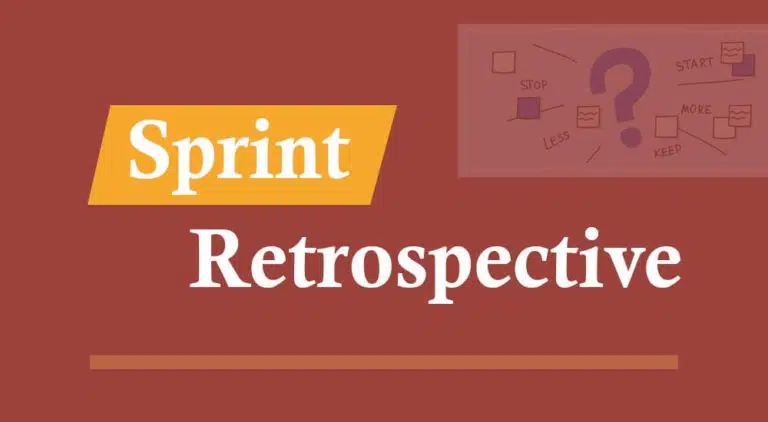The project management environment is dynamic, and project managers require many skills to successfully run and complete the project. Key project management positions include project manager, program manager, and portfolio manager.
Project managers are responsible for planning, executing, monitoring & controlling, and closing the project. Program managers are responsible for managing similar projects, and portfolio managers are responsible for managing multiple programs or different projects.
If you are into project management or intend to become a project manager and looking to develop your skills, you landed at the right post. This post will provide the key 28 project management skills you must develop to succeed in the profession.
But first, let us understand what the project management skills are.
What Are Project Management Skills?
Project management skills are attributes and qualities that help you become a better project manager and manage project management activities efficiently. A project manager should have soft and hard skills.
Soft skills are interpersonal. They define your character. For example, you may be an effective communicator, collaborator, or leader with adaptability, communication, and empathy.
Hard skills are learned through education, training, or on-site experience. For example, coding, technical expertise, language proficiency, etc.
Project management is about managing tasks and stakeholders simultaneously. A project manager must be educated and trained to use project management tools and techniques effectively. They must possess soft skills to influence stakeholders to buy in. They must complete the project and minimize conflict. They must use their hard skills to support the team and provide guidance to complete the project.
Project Management Skills
We will start with soft skills for project managers and hard skills.
Soft skills are interpersonal skills that help you carry out work smoothly and improve the work quality. Interpersonal skills do not require technical knowledge; you are born with it.
Soft Skills for Project Managers
The most important interpersonal skills for project managers are as follows:
#1. Adaptability
The project management environment is dynamic, and changes can occur at any time. The project manager must be ready to adapt to these changes while influencing the factors that cause the project to change.
Changes cause stress, so the project manager must communicate the changes and their implications and ensure the team adapts.
#2. Collaboration
Project managers led a team to complete the project and had to work with project sponsors, management, contractors, suppliers, etc. They must collaborate with all stakeholders, align them with the project goal, and carry out their assigned tasks. Collaboration is a key skill in project management as it smoothens the workflow, reduces conflicts, and increases the morale of team members.
If you lack collaboration skills, you can earn them with practice. Have patience and be a good listener. Involve in a conversion and provide constructive. Active engagement with the project team is key to effective collaboration.
#3. Communication
Effective communication is another key project management skill. Project Management Institute (PMI, USA) used to say that project managers spend 90% of their time in communication, which is a key skill for project managers. According to this PMI survey, 68% of respondents considered it the top skill in project management.
You must always speak with team members, sponsors, and management, submit status reports, and provide performance and progress reports to relevant stakeholders. All these constitute communication.
Miscommunication can cause issues for the project and can affect the project objective. The project manager must have good communication skills, whether formal, informal, written, oral, etc.
#4. Conflict Resolution
All projects have conflicts; you must solve them before they become larger issues. Every conflict is unique, and you must tackle each conflict as the situation requires. For example, if two laborers are having a quarrel, then you can simply ignore it and save precious time for more important tasks. However, if two influential stakeholders are having a conflict, you should solve it quickly and privately before the issue snowballs.
Though there is no single problem-solving technique to solve all conflicts, it is best to use a collaborative conflict-resolution technique that incorporates all parties’ viewpoints.
#5. Critical Thinking
Critical thinkers are problem solvers. It is a key project management skill. You will face many issues and tough situations if you are a project manager. Critical thinking encourages finding different approaches for an activity or problem, and you can select the way forward.
Critical thinking will allow you to avoid risks and conflicts, as well as help you select the best path forward. Critical thinking skills are important for all fields, not just project management.
#6. Decision Making
Project managers make decisions daily in project management. All decisions must affect the project outcome positively. Decision-making skills, including making the right decisions from available options, are critical. A wrong decision can severely affect the project or its objective.
#7. Delegation
A project manager has many tasks and responsibilities, and completing them alone is impossible for one person. Delegation is vital in project management. Project managers can have a project coordinator or expeditor to help them take on some responsibilities.
You should know which tasks you can delegate to your subordinates and which activities only you can complete.
#8. Leadership
Leadership is another vital project management soft skill. You are your team’s project manager, which means you are the leader of your followers. Your team member will seek your guidance and assistance in completing their task. They will also approach you if they have any conflict.
Good leadership skills motivate team members, encourage teamwork, and build a cohesive team. All this helps the project manager complete the project smoothly.
#9. Organization
Organizational skills include the ability to manage time and tasks efficiently. Project managers must handle many tasks and team members, as well as other stakeholders. They must possess good organizational skills. They must organize the workload, assign tasks, and prioritize key stakeholders.
Poor organization increases conflict dissatisfaction and discourages team members. You can create sound roles and responsibilities and implement ground rules strictly for better organization.
#10. Patience
Patience is the key interpersonal skill for project managers. Making decisions in haste has more chances of negatively impacting the project. The project manager must think critically and evaluate all available options before concluding.
#11. Teamwork
Teamwork is vital for successful project completion. The project manager must work with the project team as team members and avoid showing a superior attitude. The bossy behavior demotivates team members and does not help build a cohesive team.
Everyone on the team should feel welcome and equally important. To improve your teamwork skills, engage with your team members, have conversations with them, support their ideas, solve their problems, and encourage them to collaborate with other team members.
#12. Team-Building Skills
A project manager builds and holds the team together until they complete the project. Project managers occasionally hold team building activities so the team members can rest and connect with one another.
Many soft skills, such as communication, conflict resolution, problem-solving, etc., can help build a robust and highly motivating team.
#13. Time Management
A project manager is a busy position, so time management is a key skill for a project manager. They must not miss any important task, appointment, meeting, etc. They must be punctual at all times. You must organize tasks and allot time for them; otherwise, chaos will be everywhere.
(Note: Time management is different from schedule management. Time management is about managing time for all project activities and stakeholders, and schedule management is about managing the project schedule. Remember to prioritize all tasks and handle high-level tasks yourself for better time management. If possible, you can delegate non-important tasks to other team members so that you can attend to more critical ones.)
#14. A Sense of Humor
A sense of humor is one of the most important skills for project managers. It helps them keep patience, release stress, and comfort the project team. A good sense of humor shows the smartness of project manager and their abilities to contain tough situations.
Hard Skills for Project Managers
Soft skills are somewhat tied to your personality and are often what comes naturally to you. Hard skills are quantifiable. You earn them through education and training. Hard skills are important in project management. Hard skills typically include technical skills (e.g., coding, knowledge of specialized equipment, etc.).
The following are key hard skills in project management:
#1. Change Management
Changes are inevitable, and all projects go through them. The changes can be from poor planning, poor management, and client requests due to management requests, market conditions, new regulatory requirements, etc.
Change can come from anywhere and can affect the project objectives. The project manager must influence and try to minimize the factors causing changes. However, if changes are necessary, they must review the change and its impact on the project objectives and the route for approval. Once the change is approved, they can implement it.
Change management is an important skill in project management
#2. Configuration Management
When a client requests some changes in product configuration and add/remove features, you will manage it through configuration management. The impact of configuration management can be huge, and it also includes change management, as changes in product features will directly affect the cost, schedule, and scope baseline.
You will review the client request and the impact of the change and raise the change request. Configuration request is a key skill for project managers.
#3. Cost Management
Cost management is a necessary skill for project managers. Most projects have budget constraints, and upper management and clients will be concerned about them. Any deviation from the cost baseline can raise questions from stakeholders. Therefore, the project manager must estimate a sound budget and manage the project well, so the schedule performance index will remain within an acceptable range.
#4. Hosting Meetings
Hosting meetings is an important project management skill. The project manager will have many meetings during the project lifecycle (e.g., retrospectives, sprint planning, project kickoff meetings, etc.).
A kickoff meeting is the first meeting among project stakeholders and an opportunity for project managers to introduce themselves and get to know other stakeholders. In this meeting, they will explain the creative brief, including the project objective, key milestones, project timeline, etc.; at the end, they can have a questions and answers session. Holding these meetings requires project technical knowledge and skills.
#5. Planning and Forecasting
Every project needs planning, which is the backbone of project management. A project manager must possess planning skills. Note that the project manager does not need to create all project plans themselves, but they should know the process and technicalities involved.
In the project plan, you define how exactly you will complete and deliver the project deliverable to the project sponsor.
A project plan consists of many subsidiary plans, such as scope management, cost management, quality management, risk management, human resources, communication management, stakeholder engagement, etc.
Project forecasting helps figure out potential project outcomes. With the help of forecasting tools, you can determine future cost performance, the required budget to complete the project, etc. Forecasting reduces risks and increases the chances of successful project completion.
#6. Project Management Frameworks
In project management, you can use different project frameworks to manage your project, such as traditional, agile, or hybrid. A few examples of these frameworks are waterfall, scrum, SAFe, FSDM, Kanban, etc. The waterfall framework is an example of traditional project management; others are agile.
As a project manager, you should understand these frameworks and their best practices so you can provide support and guide your team to achieve project success.
#7. Project Management Tools
These days, most organizations use project management tools to manage their projects. These tools are cloud-based and come with many features to carry out project management activities. They allow you to create a plan, develop a schedule, assign resources to tasks, decide milestones, assign tasks to team members, monitor progress, troubleshoot issues, and more!
As a project manager, you must know how to efficiently use project management software through a computer or an app to manage your team and project.
#8. Procurement Management
A project requires many procurement contracts. The procurement can be for the material or sub-contract. Though every organization has a separate department to manage procurement activities involving legal issues, input from the project manager is necessary. They have key roles in selecting procure contract type and controlling procurement for their project.
#9. Quality Management
No one wants a poor-quality product. Quality management aims to ensure that the product is defect-free and high-quality. Quality management includes quality assurance and quality control. Quality assurance develops a sound process to ensure products are of high quality and quality control checks to products during production.
The project manager should possess the basic QA/QC skills to ensure the quality of deliverables is high and the client is satisfied.
#10. Risk Management
Risk management helps you proactively manage your project’s potential risks. It helps you complete the project with minimal hassle and within budget and schedule. A project manager must develop a sound risk management plan to manage the risks effectively.
Ignoring risks can jeopardize the project’s success; if the project is large, the project manager can hire a separate risk manager to manage risk management activities. However, they must understand the basics of risk management.
#11. Reading Charts
Project managers must know how to develop and interpret charts in project management, such as network diagrams, Gantt Charts, bar charts, Control charts, Scatter diagrams, and decision tree diagrams. You must see this chart and understand the project manager and progress.
These charts provide technical project details, including task dependencies, risks, issues, status, progress, performance, etc. Kanban board is a visual tool that many agile frameworks use extensively to manage their projects. You must follow the Kanban board to monitor and control your project progress.
#12. Schedule Management
Schedule management is the key to project success. After the budget, project sponsors are mostly worried about the schedule. Any delay in schedule directly affects the cost. It can also affect their business and delay their product launch. So, the project manager must build and manage a sound schedule to ensure there are no delays.
#13. Subject-Matter Expertise
A project must understand the processes that its team members are carrying out. Subject-matter knowledge is important for project managers; otherwise, they can’t support or guide their team members. If project managers lack technical skills, their team members won’t respect them. Expert knowledge is a great power for a project manager to have.
#14. Task Management
After the project management plan is approved, the project manager will assign tasks to team members and start the project work. This is where task management skills will come into play. If the project is small, they can assign the task manually, but if the project is large, they can use any task management software or project management software to assign and manage tasks automatically.
Regardless of the method of assigning and managing the task, the project manager must assign the task to the right team members, monitor it until the task ends, and then assign new tasks to team members. This is an ongoing process until the project ends.
Task management also includes workload management, which helps you measure the workload of your team members. You will know which team member is overloaded and if any team member can be given more work. It ensures that all team members are assigned the right amount of work, and no one is idle.
#15. Tracking and Reporting
Tracking helps the project manager monitor the project’s progress. With tracking, you can determine whether the project is going according to plan (i.e., whether it is ahead/behind schedule or under/over budget). If the project is not going according to plan, then tracking will help you find and fix the root cause of the problem.
After tracking, you can compile various reports (e.g., status/progress/performance reports). These reports are a good communication tool to use with stakeholders.
How to Develop Project Management Skills
Apart from these, you will need more skills to become a successful project manager. Project management skills are transferable to any industry; however, technical skills are specific to each industry. For example, coding skills are the key to successful IT projects, but they are useless in construction projects.
To become a successful project manager, you must develop soft and hard skills. For soft skills, you can join courses related to negotiation, communication, public speaking, team building, leadership, management, etc.
You need to learn industry-specific courses for hard skills and get some work experience.
Familiarize with project management methodologies. In the software industry, you can learn agile methodologies such as Scrum, Kanban, SAFe, DSDM, etc. If you are in construction or some other non-IT field, focus more on learning and acquiring skills in traditional methodologies.
Networking can provide mentorship and valuable insights into the field. Join project management associations or online communities to connect with experienced professionals. Consider pursuing project management certifications like PMP (Project Management Professional), CAPM (Certified Associate in Project Management), PRINCE2, or Agile certifications (e.g., PMI-ACP, Certified Scrum Master). These certifications demonstrate your expertise and commitment to the field.
Project management is an evolving field. Stay updated with the latest trends, tools, and best practices by reading industry publications, attending conferences, and participating in webinars. Seek out an experienced and good project manager who can mentor you. Learning from someone with practical experience can accelerate your development.
Why Are Project Management Skills Important?
Project management skills are vital if you are looking for a project manager role or are interested in growing your career in project management. If you acquire these skills and work in project management, you can be promoted to a project manager.
Project management skills are in high demand. According to Zip Recruiter, 93% of employers consider soft skills critical in deciding a hire. Project management is a growing profession, and it is expected that 88 million professionals will be working as project managers by 2027.
Summary
In this post, I have provided 28 essential project management skills that you must acquire to become a better project manager. Project management skills include soft and hard skills. Soft skills are ingrained in your personality, but you can improve upon them with a little practice and training. Hard skills must be earned through training or experience.

I am Mohammad Fahad Usmani, B.E. PMP, PMI-RMP. I have been blogging on project management topics since 2011. To date, thousands of professionals have passed the PMP exam using my resources.







